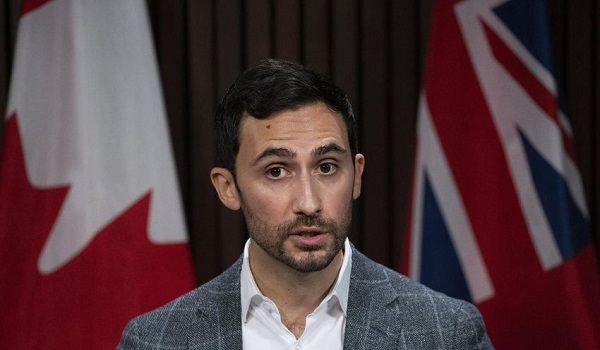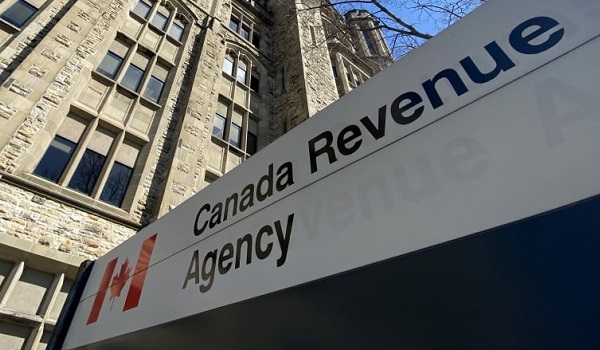Government policy on housing must change to meet up with the target on building, climate: task force
A cross-partisan group dedicated to addressing the housing and climate crises in tandem is calling on governments to dramatically change the way homes are built in Canada, including by ending zoning restrictions that discourage urban density, avoiding new construction in areas prone to flood and wildfires, and subsidizing prefabrication.
The recommendations are part of a report released on Tuesday by the non-governmental Task Force for Housing and Climate, which launched last year and is co-chaired by former Edmonton mayor Don Iveson and former Conservative cabinet minister Lisa Raitt.
“I think the sort of framing argument is that we will not solve even the housing crisis, much less the climate impacts of our housing, by building in the way that we have since the Second World War,” Mr. Iveson said in an interview, citing rising land, material, labour, energy and environmental costs.
Titled “Blueprint for More and Better Housing,” the report features more than 100 policy proposals for all three levels of government, aimed at sustainably building nearly six million homes by 2030, in line with the Canada Mortgage and Housing Corporation’s estimate of what is needed to make prices affordable.
But the task force, which is co-ordinated by Smart Prosperity Institute senior director Mike Moffatt and counts former Bank of Canada governor Mark Carney among its members, is particularly pointed on the need for higher levels of government to force pro-density policies far beyond what most municipalities have considered to date.
Among the report’s proposals in that regard is not just a loosening of unit restrictions – which often prevent the conversion of single-family properties into multiplexes – but a complete elimination of such restrictions altogether.
Similarly, it proposes an end to requirements that developers build a minimum number of parking spots per resident, which can stand in the way of multiunit buildings.
It calls on the provinces to use their legislative powers to repeal or override those and other restrictive zoning policies in cities. And it suggests that Ottawa tie its funding to provinces and municipalities – not just for housing, but also for infrastructure and transit – to moving in that direction.
While pushing the density policies, which in addition to reducing building and cost-of-living costs could reduce greenhouse gas emissions from transportation and other causes, the report calls for a co-ordinated effort to avoid new homes being constructed in places or ways that overly expose them to the mounting consequences of climate change.
On that front, it suggests that Ottawa and the provinces work together to develop better hazard maps for flood and wildfires, and use them to restrict or financially discourage construction there.
It further suggests that an overhaul of building codes include a greater emphasis on resiliency to those and other climate impacts. Among such proposed changes would be cooling requirements and safe maximum indoor temperature limits, in response to increasingly extreme heat waves.
Some of the other priorities identified by the task force would be pursued in a more incentive-based way.
That includes the encouragement of more homes to be prebuilt in factories (including increased use of mass timber), which the report’s authors bill as a way to builder faster and cheaper, with emissions-reducing efficiency and strong resiliency standards.
The prefabricated approach is less common in Canada than elsewhere, including Europe, so the report calls for Ottawa to introduce a new housing-technology tax credit geared largely toward building that sector. And it proposes that the provinces establish investment funds with the same purpose.
Some of the task force’s many other recommendations deal more squarely with the housing affordability crisis, with less climate-policy overlap. That includes addressing labour shortages that impede construction by changing immigration policies to increase skilled-trade workers.
At the same time, the report steers away from some of the more controversial climate-friendly measures often billed by environmental advocates as aligning with long-term affordability concerns, such as bans on gas hook-ups in new homes.
Mr. Iveson said in the interview that the group discussed many more restrictive policies along those lines, but was mindful of the difficulty of imposing them on a country with Canada’s regional variations, since they would incur more backlash in some places than others.
“We didn’t want to create a document that was going to have immediate reasons for people to opt out and say ‘we don’t have to take any of this seriously,’” he said. “And we didn’t want to insert ourselves into the Confederation bun fight about these issues.”
Nevertheless, the report asks governments to embrace the affordability and sustainability intersection far more decisively than they have to date.
Density is a particularly sensitive topic at municipal levels, as are efforts by higher levels of government to scale back local control, and the proposals would go far beyond some recent demands on that front by Ottawa in return for new housing funds. It would also be different from Conservative Leader Pierre Poilievre’s promise to claw back funds from municipalities that lag in housing starts, which would not similarly target sprawl.
“In no scenario does restricting the ability to deliver more housing support our economic goals or our climate goals or our social goals,” Mr. Iveson said in defence of going hard at anti-density zoning policies. “So the federal government should be putting money where it’s going to get the most aligned impact, especially since their dollars are quite scarce now.”
This article was first reported by The Globe and Mail















